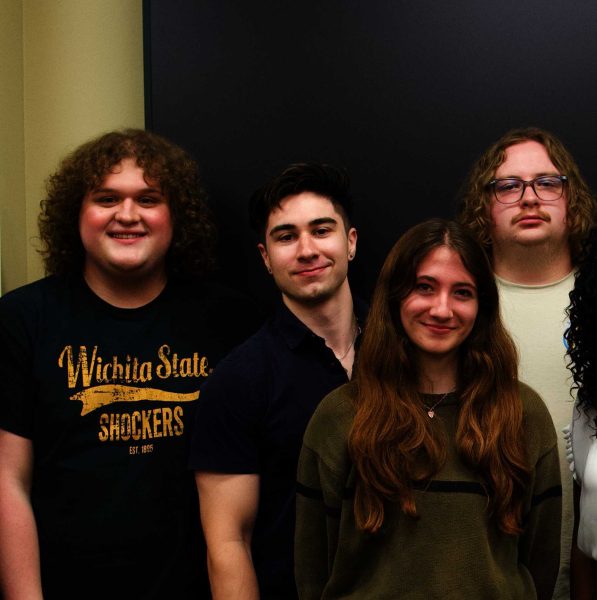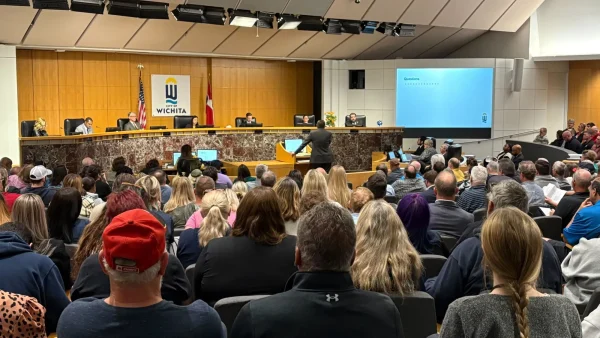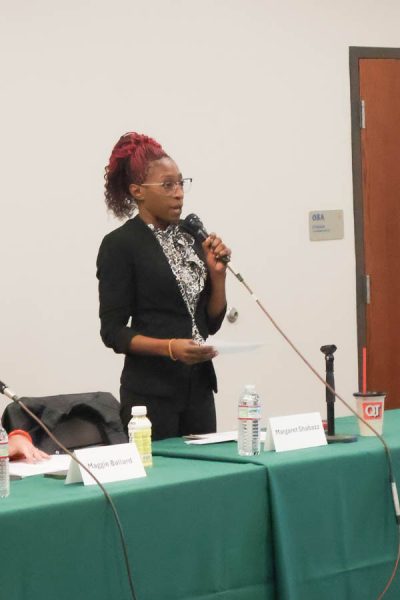Renegade Innovators with big ideas: bringing technology to the masses
Imagine dreaming up the next big thing, building it in your garage, then bringing it to market — all without spending hundreds of thousands of dollars plus years of research and development, or without selling your soul.
That’s what a team of Wichita State engineering students — Renegade Innovators, they call themselves — imagined when they launched their own startup last summer.
“The forefront of science and technology is not as accessible as we’d like,” said junior Austin White, a computer engineering major, who works an instructor with the College of Engineering’s K-12 Outreach.
“Just the ability to create an idea you have in your mind can change people’s lives,” White said. “You could be a cook at McDonald’s who has an idea. Using our technology, that cook could actually create his idea and change the world. We want to bring the ability to innovate to the average person.”
The company is called RIaspire, and it is the brainchild of graduate student James Tennant, CEO, who is studying engineering management after earning a bachelor’s degree in aerospace engineering at WSU.
“Starting a business was an adventure more than anything,” Tennant said. “I had no idea what I was doing, but it wasn’t so much a ‘what’ that we were trying to do, it was a ‘why.’ Really, the whole idea behind the business was giving people creative freedom that bigger manufacturers don’t have.”
Tennant approached a couple classmates with his idea, and he now has three core students working with him and a handful of others who come and go.
Changing the world turned out to be too big to accomplish right away, Tennant said. Developing software, acquiring parts and building their knowledge would take too long, so Tennant simplified. Instead of creating machines for the masses, they’d sell the parts to make them. That also turned out to be too complicated, so they simplified even more.
For now, RIaspire sells reasonably priced electronics parts — parts that other distributors sell for 2,000 to 3,000 percent over their value, Tennant said.
“In the act of figuring all that out,” he said, “we started to develop all sorts of inventory models to keep track of parts, with the goal of maintaining creative freedom.”
Tennant expects that within the next decade or two, there will be a revolution in manufacturing and engineering techniques akin to the one taking place in software development. Home-based makers — people who build their own ideas, the do-it-yourself (DIY) crowd — are a growing trend in this direction.
Being part of that revolution will require more than selling parts, however. The trick is making everything work together; not just business elements such as customer service, management, marketing and manufacturing, but also the machines themselves.
This is the part that excites White the most: RIaspire is developing proprietary-integrated calibration software to make it happen, the details of which are secret.
“It will be like with Apple products,” White said. “They work OK by themselves, but when you get them all together, it’s an experience you can’t replicate with anything else. We’re keeping that Apple-vibe in mind for DIY manufacturing. You can have our products individually, but when you have them together, that’s where the real magic starts.”
It will be a modular approach, White explained, kind of like Legos. With their technology, home-based makers will be able to operate many components as a single, integrated manufacturing entity, reducing the cost and risk of innovation.
“It comes back to iteration time,” Tennant said. “It doesn’t make sense to spend a year on a low-value project, but what if it doesn’t take any time? What if some guy’s crazy dog-microphone toy will inspire someone else to invent something amazing?
“The quicker we can create new ideas, the better.”







